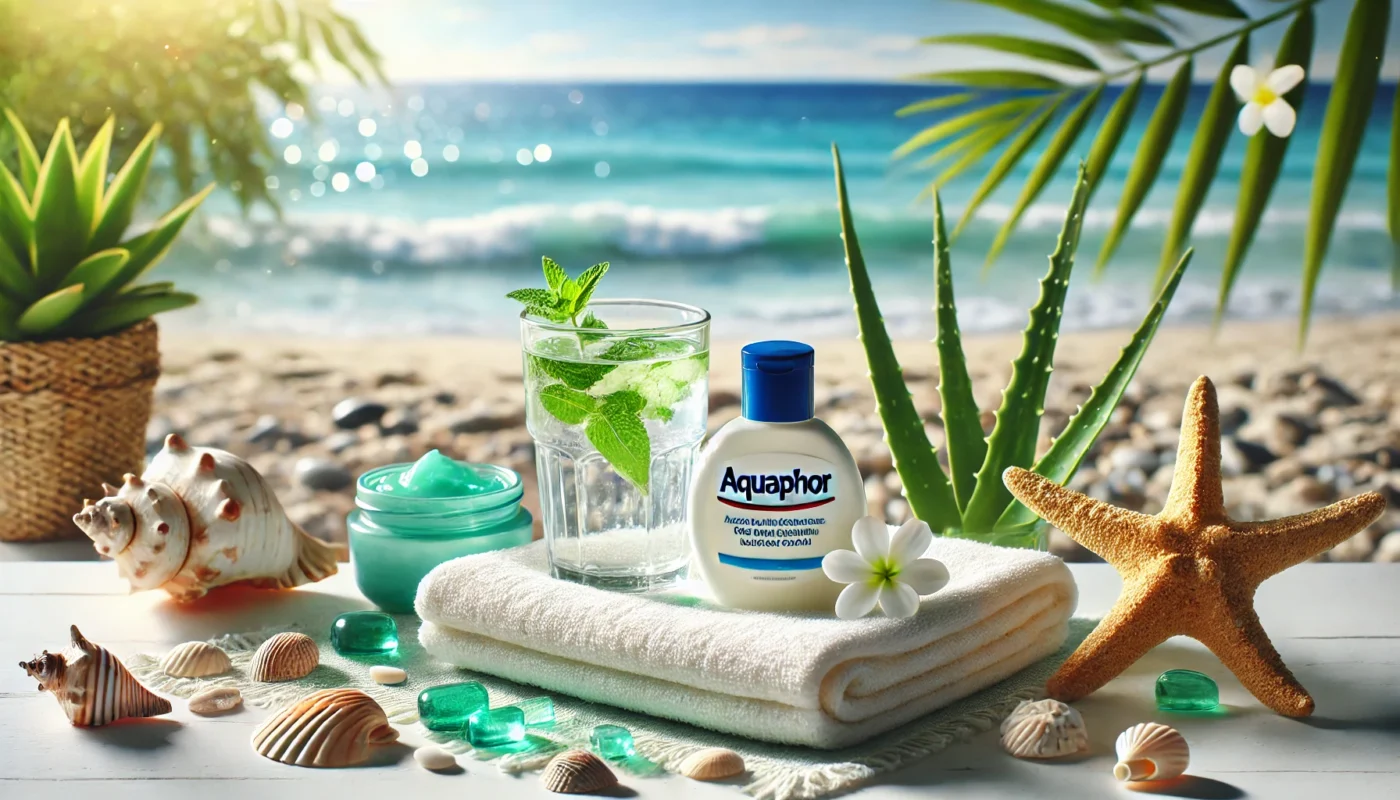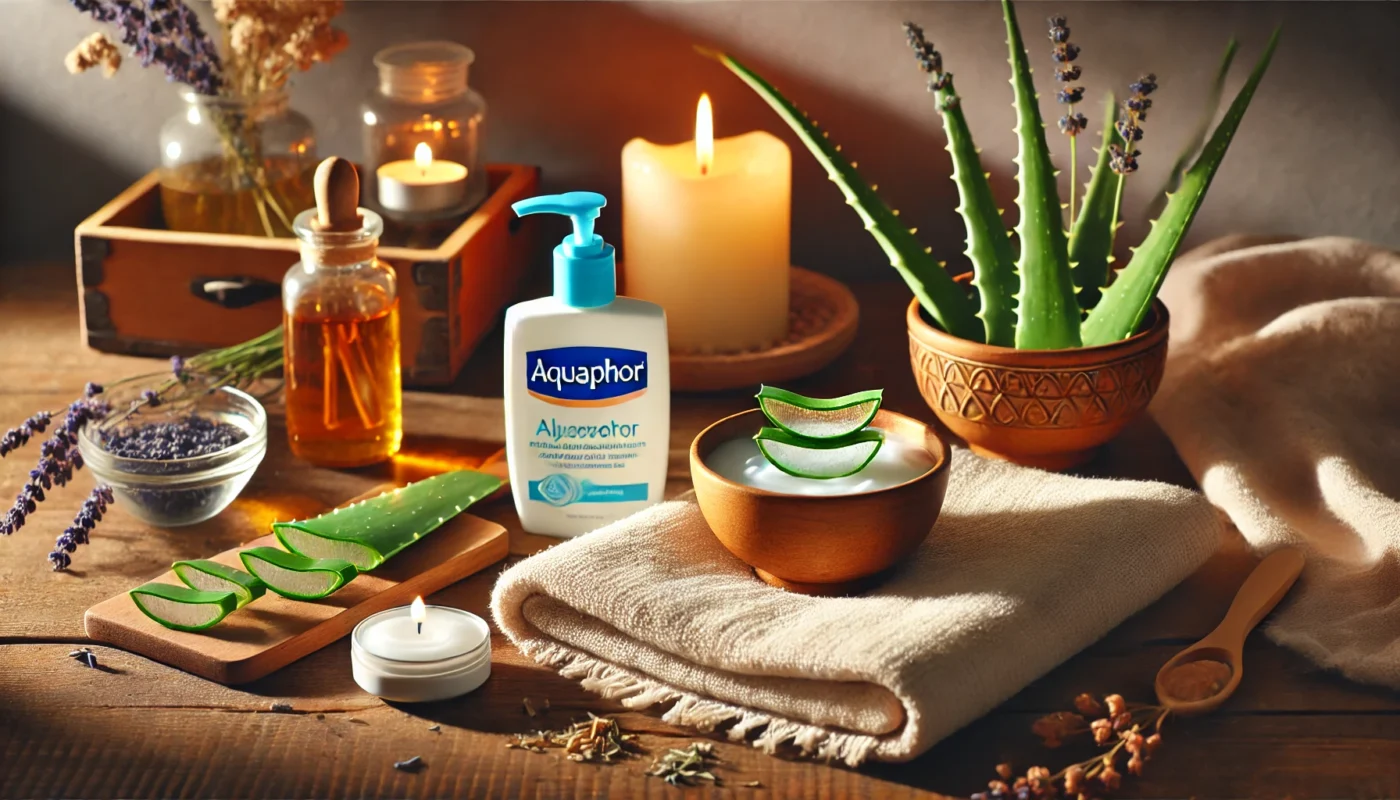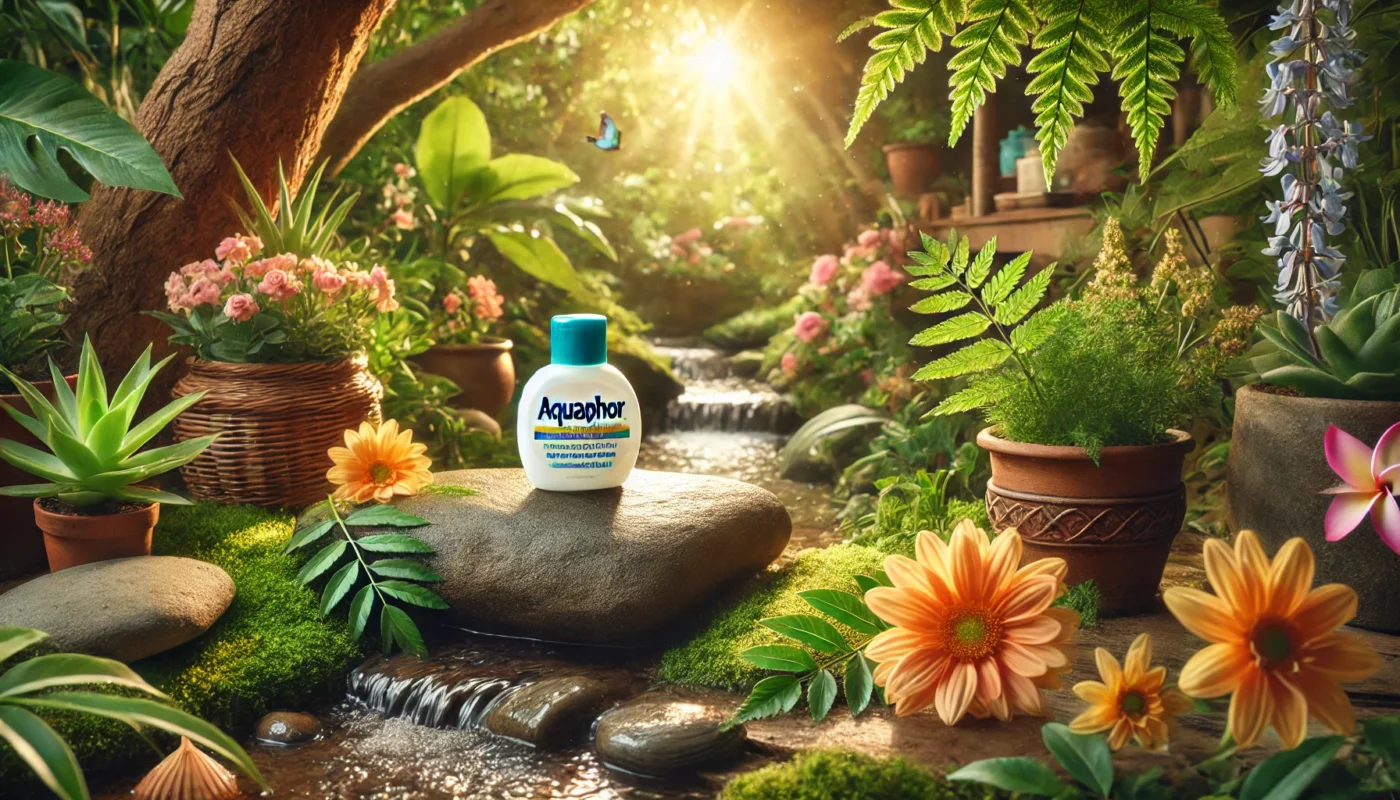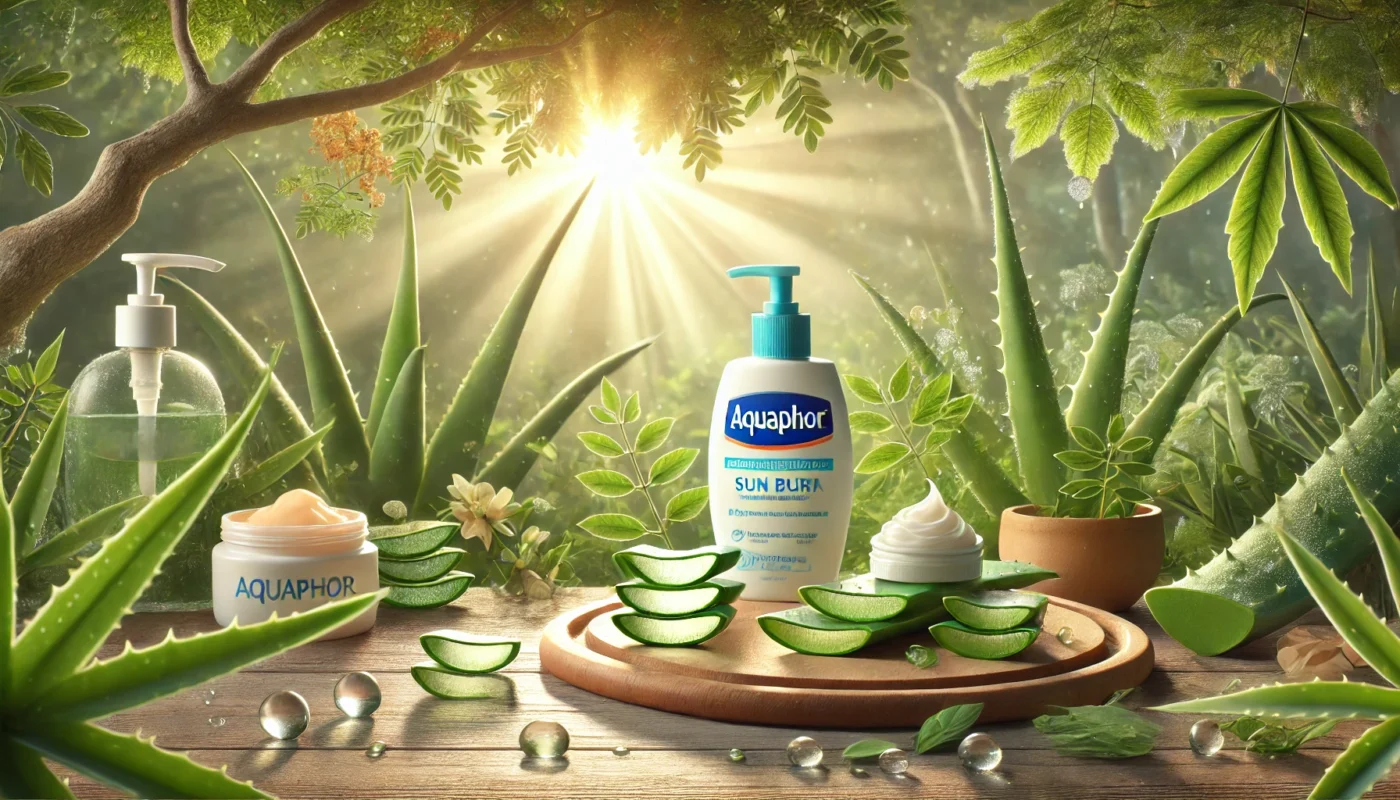Sunburns, an unfortunate consequence of prolonged sun exposure, can cause significant discomfort and damage to the skin. While prevention through sunscreen and protective clothing is key, sometimes sunburns happen, and relief is needed. One popular remedy many turn to is Aquaphor. But does Aquaphor actually work for sunburn relief? Let’s delve into the science and understand how it measures up against other treatments.
You may also like: Essential Tips for Sun Protection Daily
Understanding Sunburn and Its Effects
Sunburn is a form of radiation burn that affects the skin, resulting from excessive exposure to ultraviolet (UV) radiation, primarily from the sun. The symptoms include redness, swelling, pain, and in severe cases, blistering and peeling. Prolonged or intense sun exposure can lead to more serious health issues, such as skin cancer.
The Science of Sunburn
Sunburn occurs when skin cells are damaged by UV radiation. This damage triggers an inflammatory response, resulting in redness and pain. The body’s natural defense, melanin production, increases, but when overwhelmed by exposure, sunburn ensues. The immediate effects include discomfort and visible damage, while long-term exposure risks include premature aging and cancer.
Symptoms and Severity
Sunburn symptoms vary based on exposure time and skin type. Mild sunburn presents as redness and tenderness, while severe cases involve blistering, peeling, and potential systemic symptoms like fever or chills. Understanding the severity helps tailor treatment approaches, ensuring effective relief and healing.
Long-term Health Implications
Beyond immediate discomfort, repeated sunburns heighten the risk of skin cancer, particularly melanoma. Sun exposure accelerates skin aging, causing wrinkles and loss of elasticity. Awareness of these long-term effects underscores the importance of effective sun protection and timely treatment of sunburn.
Aquaphor: What Is It?
Aquaphor is a brand of skin care ointments and lotions that are designed to protect and heal the skin. The main ingredient in Aquaphor Healing Ointment is petrolatum, commonly known as petroleum jelly, which is renowned for its ability to create a protective barrier over the skin, locking in moisture.
Ingredients and Their Functions
Aquaphor’s formulation includes petrolatum, which creates a moisture-sealing barrier, and other beneficial ingredients like glycerin, panthenol, and bisabolol. Glycerin attracts moisture to the skin, panthenol aids in repair, and bisabolol provides soothing properties. Together, these components make Aquaphor effective for various skin concerns.
History and Development
Introduced by Eucerin, Aquaphor has a long-standing reputation in skincare. Initially developed for medical use, it gained popularity for treating dry, cracked skin and minor wounds. Its efficacy in promoting healing and protection has made it a staple in many households, particularly for sunburn relief.
Popular Uses Beyond Sunburn
Beyond sunburn, Aquaphor is used for chapped lips, minor cuts, and dry skin conditions like eczema. Its versatility and gentle formulation make it suitable for sensitive skin, including in infants. The protective barrier it forms also aids in tattoo aftercare, highlighting its broad utility.
How Does Aquaphor Work for Sunburns?
The primary function of Aquaphor in treating sunburn is its moisturizing capability. Moisture is crucial for sunburn recovery as it helps to soothe the skin and reduce the peeling and flaking that can accompany healing.
Barrier Creation
Aquaphor creates a semi-occlusive barrier on the skin, which not only retains moisture but also protects the skin from environmental irritants. This barrier is essential in preventing further damage and allowing the skin to heal in a controlled environment, reducing the risk of infection and irritation.
Moisturization
The ointment’s emollient properties help to alleviate dryness and prevent further moisture loss, which is essential for the healing of sunburned skin. By maintaining hydration, Aquaphor minimizes peeling and flaking, common in the healing process, providing comfort and aiding in the skin’s recovery.
Supporting Healing
By maintaining a moist environment, Aquaphor can facilitate the skin’s natural healing processes, potentially reducing the recovery time. The sustained moisture supports the regeneration of damaged skin cells, promoting faster healing and reducing the likelihood of scarring or prolonged discomfort.

Aquaphor vs Aloe Vera for Sunburn
Aloe vera is another common remedy for sunburn relief. It’s praised for its cooling and anti-inflammatory properties, which can provide immediate relief from the burning sensation and help reduce redness and swelling.
Immediate Relief
Aloe vera offers a cooling sensation that can provide quick relief from the heat and pain associated with sunburns, something Aquaphor does not inherently provide. The gel-like substance of aloe vera absorbs heat from the skin, providing instant soothing and comfort, ideal for fresh sunburns.
Healing Properties
While both Aloe vera and Aquaphor support skin healing, Aloe vera’s natural compounds, including antioxidants and vitamins, actively reduce inflammation and promote skin repair. Its anti-inflammatory properties target redness and swelling, accelerating the skin’s recovery process and enhancing comfort.
Moisturization
Aquaphor excels in moisturizing capabilities, which is crucial for preventing skin peeling and maintaining hydration. While aloe vera hydrates, Aquaphor’s barrier-forming ability ensures prolonged moisture retention, crucial in the later stages of sunburn recovery when peeling is common.
Combining Both for Optimal Relief
Ultimately, a combination of both may offer the most comprehensive relief: Aloe vera for immediate soothing and inflammation reduction, and Aquaphor for long-term moisturization and protection. This dual approach leverages the strengths of each, ensuring both immediate comfort and sustained healing support.
Can You Use Neosporin on Sunburn?
Neosporin, a topical antibiotic ointment, is typically used for preventing infections in minor cuts and abrasions. While it can technically be applied to sunburned skin, especially if blisters have formed and broken, it’s not generally recommended for routine sunburn relief.
Antibiotic Use Concerns
Overuse of antibiotics can lead to resistance; applying Neosporin when not necessary contributes to this risk. Antibiotics should be reserved for cases where infection is a concern, such as open blisters, to prevent bacterial growth and complications.

Lack of Moisturization
Neosporin lacks the strong moisturizing properties needed to soothe and hydrate sunburned skin effectively. Its formulation focuses on infection prevention, not hydration, making it less suitable for addressing the drying and peeling associated with sunburn.
Consulting Healthcare Professionals
If infection is a concern due to open blisters, a healthcare professional should be consulted to determine the best course of action. They can provide guidance on appropriate treatments and whether antibiotics are necessary, ensuring safe and effective care for sunburned skin.
Practical Tips for Sunburn Relief
While Aquaphor can be a helpful component in a sunburn relief regimen, integrating other strategies can enhance recovery:
Cool Baths or Compresses
Use cool (not cold) water to soothe the skin. Adding oatmeal or baking soda to the bath can further alleviate discomfort. The gentle cooling effect reduces heat and irritation, providing immediate relief from the burning sensation associated with sunburn.
Hydration
Sunburn can draw fluid to the skin’s surface, leading to dehydration. Drinking plenty of water is crucial to help replenish lost fluids. Adequate hydration supports the body’s natural healing processes and aids in maintaining skin elasticity and moisture.
Moisturizing Routine
After a cool bath, gently pat the skin dry and apply a moisturizer like Aquaphor to lock in hydration. Consistent moisturization prevents drying and peeling, aiding in the skin’s recovery and maintaining comfort throughout the healing process.
Avoiding Further Sun Exposure
Until your skin has healed, avoid further sun exposure to prevent exacerbating the burn. Wearing protective clothing and seeking shade can protect vulnerable skin, allowing it to heal without additional UV stress.
Over-the-Counter Pain Relief
Over-the-counter pain relievers such as ibuprofen can help reduce inflammation and manage pain. These medications alleviate discomfort and contribute to reducing swelling, facilitating a smoother recovery process.
Conclusion: Is Aquaphor Good for Sunburns?
Aquaphor can be an effective component of sunburn treatment, primarily due to its moisturizing properties, which help maintain skin hydration and promote healing. While it doesn’t provide the immediate cooling relief that aloe vera offers, it supports long-term skin recovery by creating a protective barrier and maintaining a moist environment conducive to healing.
Integrating Multiple Remedies
For optimal results, consider using Aquaphor in conjunction with other remedies like aloe vera and ensure proper hydration and rest for the skin. This multi-faceted approach addresses both immediate discomfort and long-term healing, maximizing recovery outcomes.
Prioritizing Prevention
As always, the best remedy is prevention, so prioritize sun protection to avoid sunburn in the first place. Regular use of sunscreen, protective clothing, and mindful sun exposure can significantly reduce the risk of sunburn and its associated discomfort.

When to Seek Medical Attention
Remember, if you experience severe sunburn with extensive blistering or systemic symptoms like fever, it’s essential to seek medical attention promptly. Professional guidance ensures appropriate care and prevents complications, supporting a safe and effective recovery.
By integrating these approaches, you can effectively manage sunburn and support your skin’s recovery process. Stay sun-safe and enjoy the outdoors responsibly!
Further Reading:
The Best Ways to Treat Sunburned Lips
How to Treat and Prevent Sunburned Lips, According to Dermatologists
aquaphor, sunburn relief, aloe vera, neosporin, skin care, moisturization, healing properties, skin health, sun protection, hydration, skincare tips, sunburn treatment, UV radiation, skin care remedies.
Important Note: The information contained in this article is for general informational purposes only, and should not be construed as health or medical advice, nor is it intended to diagnose, prevent, treat, or cure any disease or health condition. Before embarking on any diet, fitness regimen, or program of nutritional supplementation, it is advisable to consult your healthcare professional in order to determine its safety and probable efficacy in terms of your individual state of health.
Regarding Nutritional Supplements Or Other Non-Prescription Health Products: If any nutritional supplements or other non-prescription health products are mentioned in the foregoing article, any claims or statements made about them have not been evaluated by the U.S. Food and Drug Administration, and such nutritional supplements or other health products are not intended to diagnose, treat, cure, or prevent any disease.

